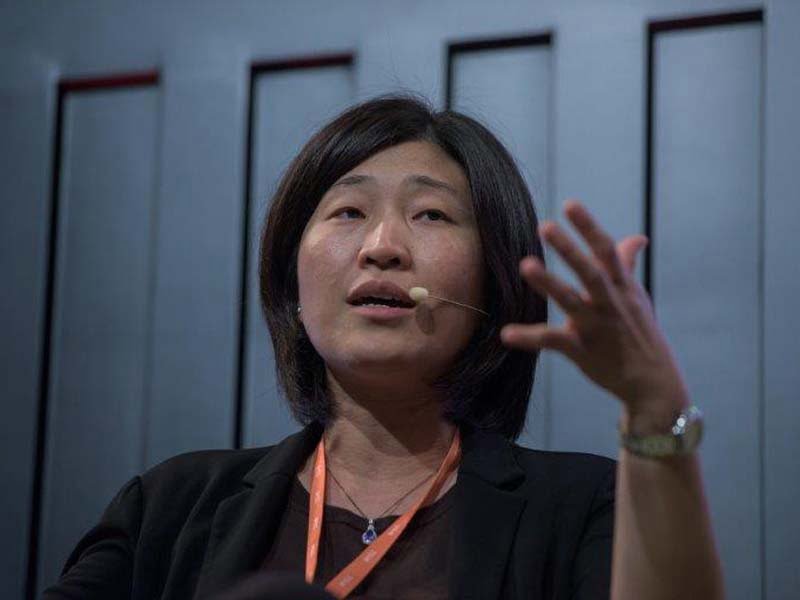No amount of hand-wringing over protecting your intellectual property in China is going to help build your company, and the notion that you can be globally focused and somehow avoid China is nonsense, according to GGV Capital’s Jenny Lee – widely considered the world’s most influential female VC executive.
She has some fairly simple advice for Australian companies gnashing their teeth about how to deal with IP issues in China: Get over your fears, be sensible about your approach, and just get on with it.
In fact, if you are looking at a world market and you don’t have a China plan – especially if you are a maker or in any Internet of Things-related area – you will likely fail. Getting tied up in knots about IP will just make that happen faster.

Ms Lee has been named four years running in Forbes magazine’s subtly-named Global Top 100 VC Midas list. She is the first woman to crack Midas’ top ten and is considered the world’s most successful female venture capitalist.
As managing partner of GGV Capital’s China operation, Ms Lee is a rock star in the global VC sector. She was an angel investor in China’s famously successful handset maker Xiaomi, which has grown into a $45 billion giant, and an early investor in many multi-billion NASDAQ-listed Chinese tech companies.
Speaking at the giant RISE conference in Hong Kong today, Ms Lee says she hasn’t been asked a question about IP in relation to China in 10 years. “It’s a bad question,” she says, in a typically direct Chinese fashion. Her proposition is simple enough: Whatever challenges there are in China in relation to IP are just a part of business. You have to work in the environment: Be prepared, register your patents, get good lawyers (not just international lawyers, but good local lawyers too) find people to help you navigate the landscape, be fast, be smart.
What’s the alternative, she says? Wait for perfection in the China market? You just have to get on with it.
China is ground zero for tech sector growth among disruptive companies with a global focus, and will remain this way for at least five years.
There are about two billion smartphone internet users in the world today, of which 600 million to 700 million are in China, with 300 million in the US, 150 million in India and then countries like Indonesia, Russia Brazil and others.
“That 2 billion number will grow to 4 billion in the next five years. China will double its numbers, and you will see a lot of this growth come from Southeast Asia, India, Russia and Brazil,” she said.
But China is central to a lot of this growth. In relation to the Internet of things, China makes up most of the supply chain.
“If you can do without China, and you have this fear of setting up there, then don’t go,” Ms Lee said. “But if you are in the makers community, 90 per cent of your supply chain is in China. So in not going, you will fail,” she said. “Maybe you can find that 10 per cent in Vietnam, but the price is not going to be the same (and you will encounter the same problems anyway.)”
“If your business requires you to be in China, then my advice as an entrepreneur is figure how to get smart about it,” Ms Lee said. “It is as simple as that. There’s no perfect answer.”
But this is the same as any market. If you got to the US – or any market – you have to get the relevant understanding of how it operates, and do it upfront before you go. You have to understand what the risks are, and then prepare for it.”
Regardless, she says, it’s a moveable feast. Change is constant, and China is a very different place in relation to IP than it was 15 years ago when she was starting out.
The fact that the Government is investing heavily in building China’s home-grown innovation eco-system is instructive. There is a cultural shift in the way entrepreneurs understand IP. And like other countries, startup support in China include various programs for helping innovators register their IP.
This is genuine cultural change. If entrepreneurs in China are doing it [registering their IP], you can be sure they are proud of their product and that they want to protect it! Of course, this is something that needs to be top of mind.”
On being a woman in the male dominated world of VC, Jenny Lee says her success is not so unusual in China. Culturally, she says, the Chinese are much more accepting of the normality of women in positions of power.
But she also says she has enjoyed “first-mover advantage”. Having started as an angel investor 15 years ago when the China VC industry was pre-embryonic, she has grown up with the sector. She is a fixture of the scene.
Do you know more? Contact James Riley via Email.

